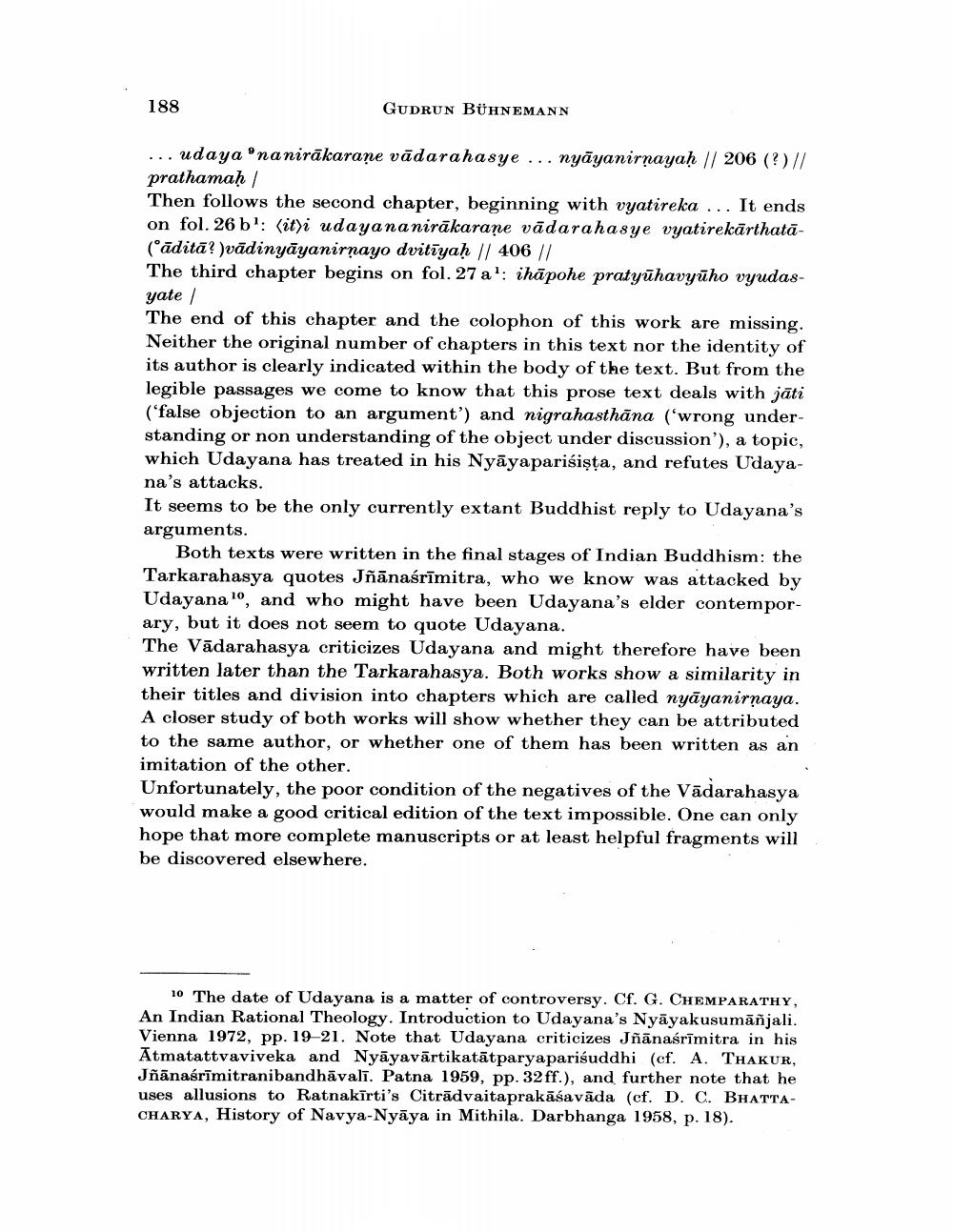Book Title: Tarkarahasya And Vadarahasya Author(s): Gurdrun Buhnemann Publisher: Gurdrun Buhnemann View full book textPage 4
________________ 188 GUDRUN BÜHNEMANN ... udaya 'nanirākarane vādarahasye ... nyāyanirnayaḥ // 206 (?) // prathamaḥ / Then follows the second chapter, beginning with vyatireka ... It ends on fol. 26 b': (it)i udayananirākarane vādarahasye vyatirekārthatā(āditā? )vādinyāyanirnayo dvitīyaḥ // 406 // The third chapter begins on fol. 27 a': ihāpohe pratyūhavyūho vyudasyate/ The end of this chapter and the colophon of this work are missing. Neither the original number of chapters in this text nor the identity of its author is clearly indicated within the body of the text. But from the legible passages we come to know that this prose text deals with jāti ('false objection to an argument') and nigrahasthāna ('wrong understanding or non understanding of the object under discussion'), a topic, which Udayana has treated in his Nyāyaparisista, and refutes Udayana's attacks. It seems to be the only currently extant Buddhist reply to Udayana's arguments. Both texts were written in the final stages of Indian Buddhism: the Tarkarahasya quotes Jñānaśrīmitra, who we know was attacked by Udayana 10, and who might have been Udayana's elder contemporary, but it does not seem to quote Udayana. The Vādarahasya criticizes Udayana and might therefore have been written later than the Tarkarahasya. Both works show a similarity in their titles and division into chapters which are called nyāyanirnaya. A closer study of both works will show whether they can be attributed to the same author, or whether one of them has been written as an imitation of the other. Unfortunately, the poor condition of the negatives of the Vādarahasya would make a good critical edition of the text impossible. One can only hope that more complete manuscripts or at least helpful fragments will be discovered elsewhere. 10 The date of Udayana is a matter of controversy. Cf. G. CHEMPARATHY, An Indian Rational Theology. Introduction to Udayana's Nyāyakusumāñjali. Vienna 1972, pp. 19-21. Note that Udayana criticizes Jñānaśrīmitra in his Atmatattvaviveka and Nyāyavārtikatātparya parisuddhi (cf. A. THAKUR, Jñānaśrīmitranibandhāvalī. Patna 1959, pp. 32 ff.), and further note that he uses allusions to Ratnakīrti's Citrādvaitaprakäsavāda (cf. D. C. BHATTACHARYA, History of Navya-Nyāya in Mithila. Darbhanga 1958, p. 18).Page Navigation
1 2 3 4 5 6
